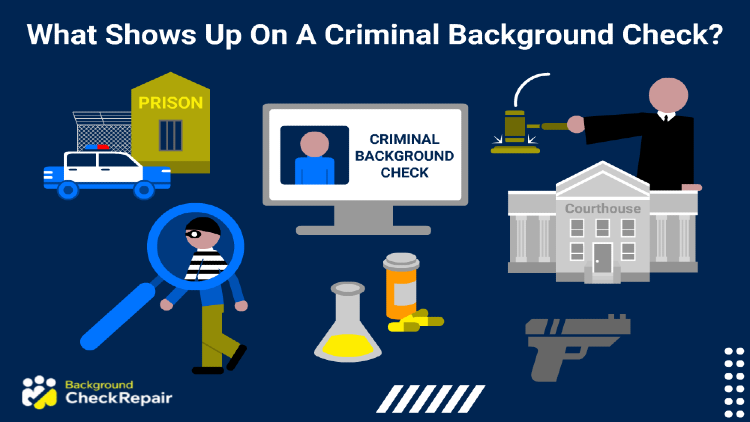
Understanding what shows up on a criminal background check can help individuals with job interviews, credit checks, and other background examinations, such as those used for no-cost volunteer background investigations, employment (like Home Depot employment background check, Walmart employment background check, UPS, FedEx, and other background checks for nonprofit organizations.
In fact, there are at least 24 things that a criminal background check will look for, which can impact whether or not someone has a failed background check.
Of course, anyone can find out what employers will see on a background check by running one on themselves first.
But what are the most crucial things that show up, given that states have different laws?
The tricky part is first recognizing the reason for the check, then anyone can find out information revealed in a background check.
For example, a misdemeanor that occurred 20 years ago won’t show on an employment check, but it will show up on a security clearance screening investigation because there are no time limits on how far back they can go.
The following guide examines 24 things that can be detrimental to passing a background screening and identifies specific situations that may show up, depending on the type of background check being run.
What Shows Up on a Criminal History Background Check?
A criminal history background check can include felony and misdemeanor court records. Felonies are serious offenses that carry a minimum sentence of one year in jail, whereas a misdemeanor is punishable by a fine or jail time of less than one year.
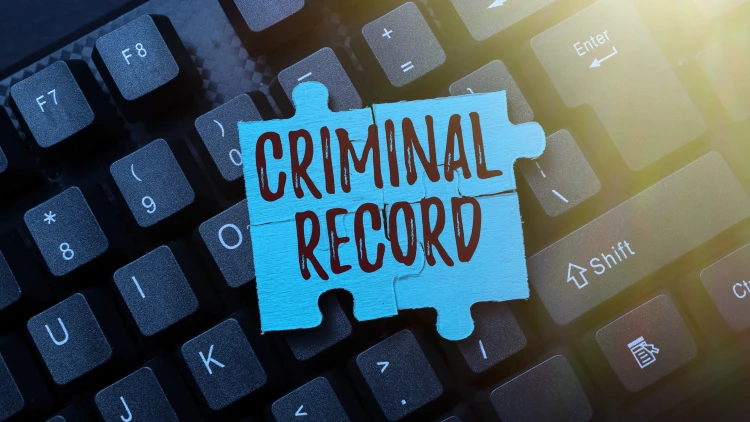
Furthermore, pending arrests and criminal cases will also appear on the criminal history background check (depending on the Equal Employment Opportunity Commission12 rules, some background checks do not include pending prosecutions or arrest records).1
Depending on the specific state in which the background check is being conducted, criminal checks will go 7 or 10 years in the past, and show essentially any contact with law enforcement…except for a few situations.
What Shows Up on a Background Check: Criminal Records
What shows up on a criminal background check?
The following list examines some of the most common items and outlines them in detail below:
| Criminal History Record | Does a Criminal Background Check Show It? |
| #1. Past Convictions (Lifetime) State Only | Yes and No [See below for complete answer] |
| #2. Past Convictions (Last 7-10 Years) State Only | Yes |
| #3. Pending Charges (State Only) | Yes and No |
| #4. Pending Charges (Federal Only) | No |
| #5. Pending Arrests (State Only) | Yes and No |
| #6. Pending Arrests (Federal Only) | No |
| #7. Warrants (Local) | Yes and No |
| #8. Warrants (State) | Yes and No |
| #9. Warrants (Federal) | Yes and No |
| #10. Warrants (Pending) | No |
| #11. Old Arrests (State, 7-10 Years) | Yes and No |
| #12. Old Arrests Nationwide (Last 7-10 Years) | Yes and No |
| #13. Old Arrests (Lifetime) | Yes |
| #14. Dismissed Charges | Yes |
| #15. Past Convictions (International) | Yes |
| #16. Judgments Against You | Yes |
| #17. Harassment Order | Yes and No |
| #18. 72 Hour Hold | Yes and No |
| #19. Warnings (Driving) | Yes and No |
| #20. Getting Fired | Yes and No |
| #21. Being Detained | Yes and No |
| #22. Dropped and dismissed charges | Yes and No |
| #23. Parking tickets | No |
| #24. Evictions | Yes and No |
- Do past convictions show on state-based checks? State-based checks will only show lifetime records when used for certain positions, such as a government job. However, some states allow background checks to search lifetime criminal records, so if a person has a felony in a state that doesn’t limit how far back a background check can go, then the felony (or other criminal activity) will appear.
- Do past convictions from the last 7-10 years appear on state-based checks? If an individual was arrested but found not to be guilty, the charges will be dropped. However, if they are arrested and convicted of a crime, this will appear on their record since they were deemed guilty of the crime. The only exception of notifying an employer of a conviction is if the records were expunged or sealed when the background check was conducted.
- Do pending charges affect background investigations, state-based screening? Each state differs regarding public information with pending court cases. Some background checks in states show pending cases, whereas others do not. Many states limit employers or others in terms of conducting a background check regarding the pending charges. In some states, employers cannot ask job applicants about pending arrests or charges that did not leave to conviction.
- Do pending charges show up on federal checks? All states must follow federal regulations regarding pending cases. The Fair Credit Reporting Act13 helps protect a person’s criminal history, whereas other federal laws prohibit employees from disqualifying a person for an arrest based on race.
- Do pending arrests show up on a state-based check: Every state approaches arrests without convictions differently. Most states include legal information on arrest records, making these records a part of public records. Some states allow employers to view arrest records, even those with no conviction. However, other states do not allow employers to see arrest records.
- Do pending arrests show up on a federal background check: The Fair Credit Reporting Act requires employers to obtain written permission if they want to do a background screening on an individual during the hiring process. There is federal legal protection regarding pending charges and pending arrests during the hiring process.
- Do warrant information on local checks appear? Certain states make it possible to request public information maintained by local and state government agencies, including arrest warrants. In this case, since the information is not available for public consumption online, it only MAY or may not appear on a background check. It depends on the type of warrant (civil, bench, search, for arrest) and the specific state.
- Do warrants appear on state-based checks: There are certain scenarios in which warrants may appear on background checks in specific states. For example, in Florida, warrants would appear on background checks using state resources, such as the Public Access System. Due to the Freedom of Information Act,14 law enforcement agencies cannot deny information when asked.
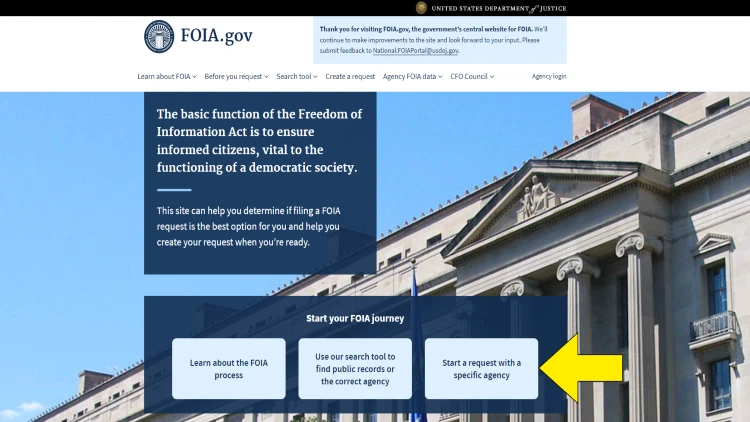
- Do federal warrant checks appear on background checks? A FBI check reveals arrests, convictions, felonies, and misdemeanors. This type of check is done by a fingerprint submission to the FBI, which can connect the person in question to an arrest or charge, but not necessarily a warrant. An FBI background search usually does not reveal pending warrants for individuals, not in the system. Therefore, FBI background checks are usually only used for jobs concerning sensitive and classified information and will not include a warrant that has not been executed.
- Do pending warrants appear on a background check: The process depends on the specific state. In some states, a background check cannot include any records that did not result in a conviction more than 7+ years ago.2 Finding old arrest records is typically done through an online or in-person request via the county clerk. If a person cannot seek out historical arrest documents through the clerk, they may have to search via the federal arrest records, as they are easier to use than state or county resources in terms of charges 7-10 years ago.
- Do old arrests show on a state-based check: A felony charge and conviction can vary depending on the specific charge. For a drug violation, the felony will show on the background check for seven years. For aggravated assault, the felony will stay on a person’s record indefinitely.
- Do felony charges appear on a background check after 10 years? Individuals who have been charged with a felony may wonder if it shows up after ten years. In short, yes. However, the check can influence what will appear. Since most felony convictions last indefinitely, the employer’s time frame of the search and the specific state law will influence if the felony appears on the background check.
- Do dismissed charges impact background results? If charges are dismissed, they will still appear on a criminal record. A dismissed criminal charge will stay on a record permanently if the person does not do anything to erase it. Even if the person does not have any other criminal convictions, they will still have a permanent record. In some cases, the individual can have the dismissed charges removed by sealing the record or expunging records.
However, this is not always possible, depending on the charge. Individuals who can remove a dismissed charge can do so by expunging a dismissed charge after not having a felony conviction within the past five years or not being convicted of a crime other than a misdemeanor.
The other option is to seal a dismissed charge after three years have passed from the crime and the person is not being prosecuted for another crime, they haven’t been arrested in the last three years, they haven’t been convicted of a crime in 10 years, and they don’t have any other records that were sealed within the last ten years.
- Do international convictions and charges appear on a background check? Convictions and criminal charges internationally will appear on a person’s record. The Global Verification (international background check) screening includes reference checks, education, employment verification, criminal records, warrants, and derogatory records.
- Do judgements against you show up on a criminal check? It depends on whether the judgement was civil or criminal and whether the case was sealed (such as with family court cases).
- Do harassment orders show on a background check? Harassment orders are usually considered public records, meaning they will show on a level 2 background check. Many states have passed legislation influencing who can look up protection orders — however, protection orders differ on a state-by-state basis. Furthermore, harassment orders can be sealed or expunged through the court process.
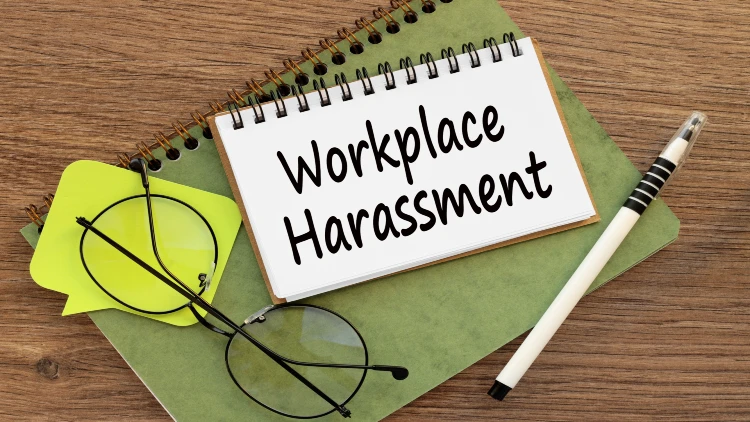
- Does a 72 hour hold show up on your records in a criminal background check? No. Not unless the hold was the result of a criminal action. If criminal acts were done that resulted in the hold, then the criminal record would show the arrest or police report.
- Do driving warnings show on a background check? A police action dictates whether a warning goes on the record depending on the state’s legal driving codes and statutes. Some Officers will let individuals go without any warning, whereas others will not — in this case, moving violations will show up on a person’s background check.
- Do employment terminations go on record? Getting fired will only go on a person’s permanent record if the fire-able offense was related to criminal activity.
- Does getting detained show up on a background check? States have different laws regarding detainment records and public records, meaning it depends on where the person was detained to influence what will show on the background check. Technically, detention prevents free movement, but law enforcement can keep someone in custody if there is insufficient evidence. Detention will go on a person’s record depending on whether a charge or conviction accompanies the detention.3
- Will dropped charges appear on a background check: It depends on the level of search performed by the employer. Every state has a limit regarding the Ban the Box laws and when an employer can use the background check for hiring purposes. Will evictions appear on a background check: Evictions do not show on a background check for a landlord. Evictions are considered civil matters, whereas background checks will contain criminal matters. However, certain background checks can include credit reports, which may include an eviction after it has been recorded as a court judgment.
- Do parking tickets go on your record? No, a parking ticket will not go on the record because technically it occurs while the vehicle is not in motion. However, if parking tickets pile up to the point of having a license suspended and then a person is caught driving with a suspended license, then that incident will show up.
- Does an eviction go on your record? If the eviction proceeded through the courts, yes, it will show up.
What Shows Up on a Criminal Background Check For Employment
A criminal background check for employment is impacted by various federal and state laws that dictate how far a level 2 background check can go and the retroactive period for an FBI background check.
In general, most background check companies cannot use anything on a person’s record more than seven years ago in most states. The Fair Credit Reporting Act limits employers from searching for certain information but leaves the specific time frame up to the individual states.

The information included on the level one background check for employment includes the following:
In addition, certain professionals use specific background checks to protect themselves from liability, protect their staff, and safeguard their customers. These job-specific background checks run a fingerprint-based level 2 background check:
- Healthcare jobs
- Jobs involving vulnerable groups (elderly or children)
- Financial jobs
- Jobs that deal with sensitive information
- Jobs that require certain education or certifications
- Jobs with heavy machinery
- Salaries greater than $75,000 (sometimes)
What Shows Up on a County Criminal Background Check
A county criminal background check includes all felony and misdemeanor crimes tried at local jurisdictions and filed in county courthouses.
A county criminal check provides criminal history about the person in question, including felony records, misdemeanor records, pending cases, convictions, adjudication withheld, and active warrants.
If a person’s record is found, the county criminal background check can also include:
- Offense level (ex: Class A Felony)
- Disposition
- Identifiers to match the person to the criminal record
- Sentencing
The county criminal record check does not include driving offenses (ex: traffic violations), petty crimes, dismissed charges, or expunged records.
What Shows Up on a Criminal Background Check For Apartment
A landlord can conduct a rental background check to determine if the potential tenant is reliable, trustworthy, and responsible with their money.
This background check includes the person’s details, criminal background report, eviction records, credit history, and credit score. The credit history contains bankruptcies, foreclosures, current repayment schemes, and any debt notices.
The applicant’s credit score determines the person’s creditworthiness based on numerous factors, such as debt owed, credit card lines, and credit payment history.4
What Shows Up on a FBI Criminal Background Check
There are differences between a basic background check and an FBI fingerprint background check. The typical background check is a name-based search that gathers supplemental and basic information, with some of the more detailed information including criminal records, employment history, and driving records. The criminal history record is limited to one jurisdiction.
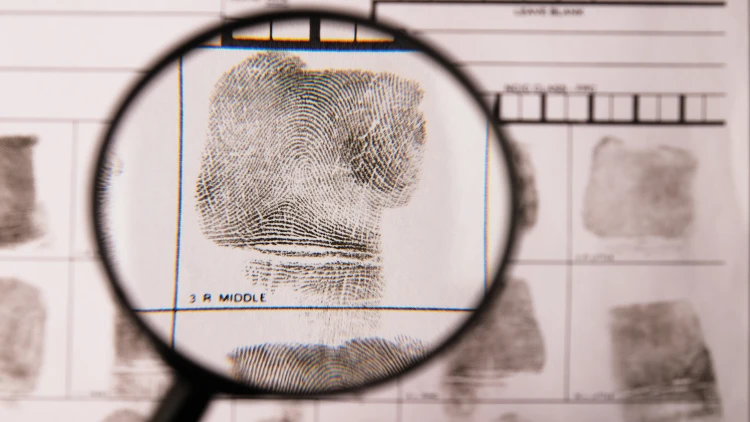
On the other hand, an FBI criminal background check is a search based on the individual’s fingerprints that can provide federal (national) and sometimes international history.
The FBI criminal background check will include personal information (address and family) and criminal records based on the fingerprint submission, with information related to arrests, employment, military service, and naturalization.
Knowing what shows up on a criminal background check is a good way to eliminate disqualifying offenses before the background check is run.
Frequently Asked Questions About What Shows Up on a Criminal Background Check







